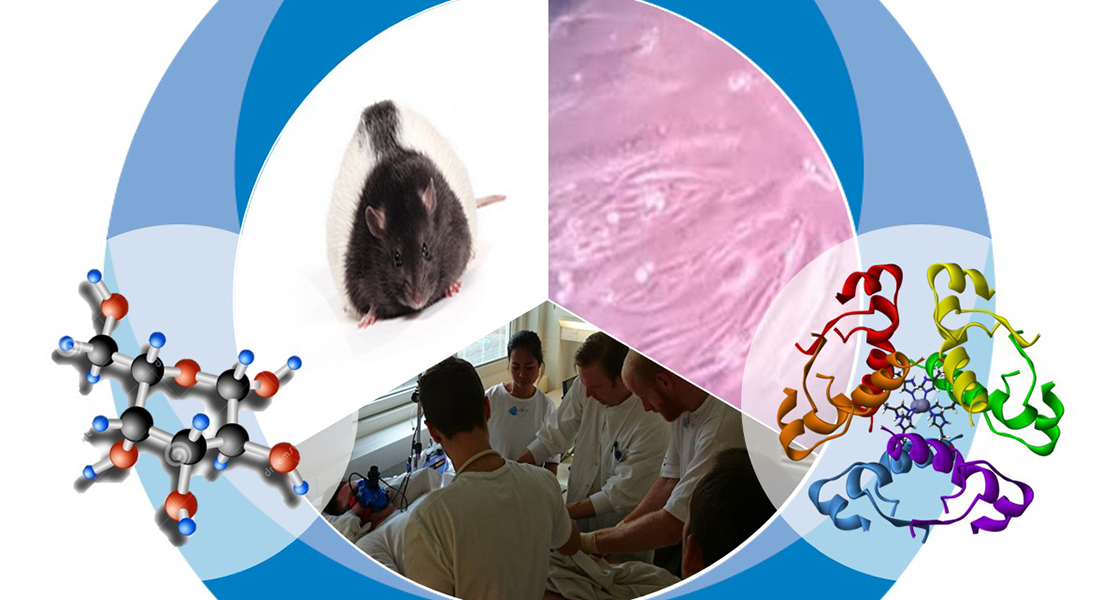PhD defence: Skeletal muscle angiogenesis and its relation to insulin sensitivity

Anna Maria Charlotte Kaufmann Lindqvist
PhD thesis
One of the major causes of type 2 diabetes is a weakened response to insulin (insulin resistance) in the muscles. Individuals with insulin resistance have fewer small blood vessels (capillaries) and less VEGF (a molecule important to the formation of capillaries) in the muscles. It has been proven that exercise is beneficial to the formation of new capillaries (capillarization) and for increasing insulin sensitivity, however people with insulin resistance are less susceptible to these effects.
In this thesis the effect of an increased capillary density in muscles on whole-body insulin sensitivity was examined. Healthy rats and insulin resistant humans were given a drug known to promote capillarization. In addition, obese Zucker rats (an animal model of insulin resistance) received VEGF augmentation treatment to one muscle in the leg and were subjected to a period of swim training (6 weeks).
A causal relationship between muscle capillarization and insulin sensitivity is shown in this thesis.
2017, 198 pages,
ISBN 978 87 93476 79 0
Time
3 February 2017, 14:00
Place
Aud 1, August Krogh Building, Universitetsparken 13, 2100 Copenhagen
Opponents
Professor Anders Sjödin (chair), Department of Nutrition, Exercise and Sports, University of Copenhagen, Denmark.
Professor Stuart Egginton, School of Biomedical Sciences, University of Leeds, United Kingdom.
Professor Jørgen Jensen, Department of Physical Performance, Norwegian School of Sport Science, Norway.
Supervisor
Professor Ylva Hellsten, Department of Nutrition, Exercise and Sports, University of Copenhagen, Denmark.
